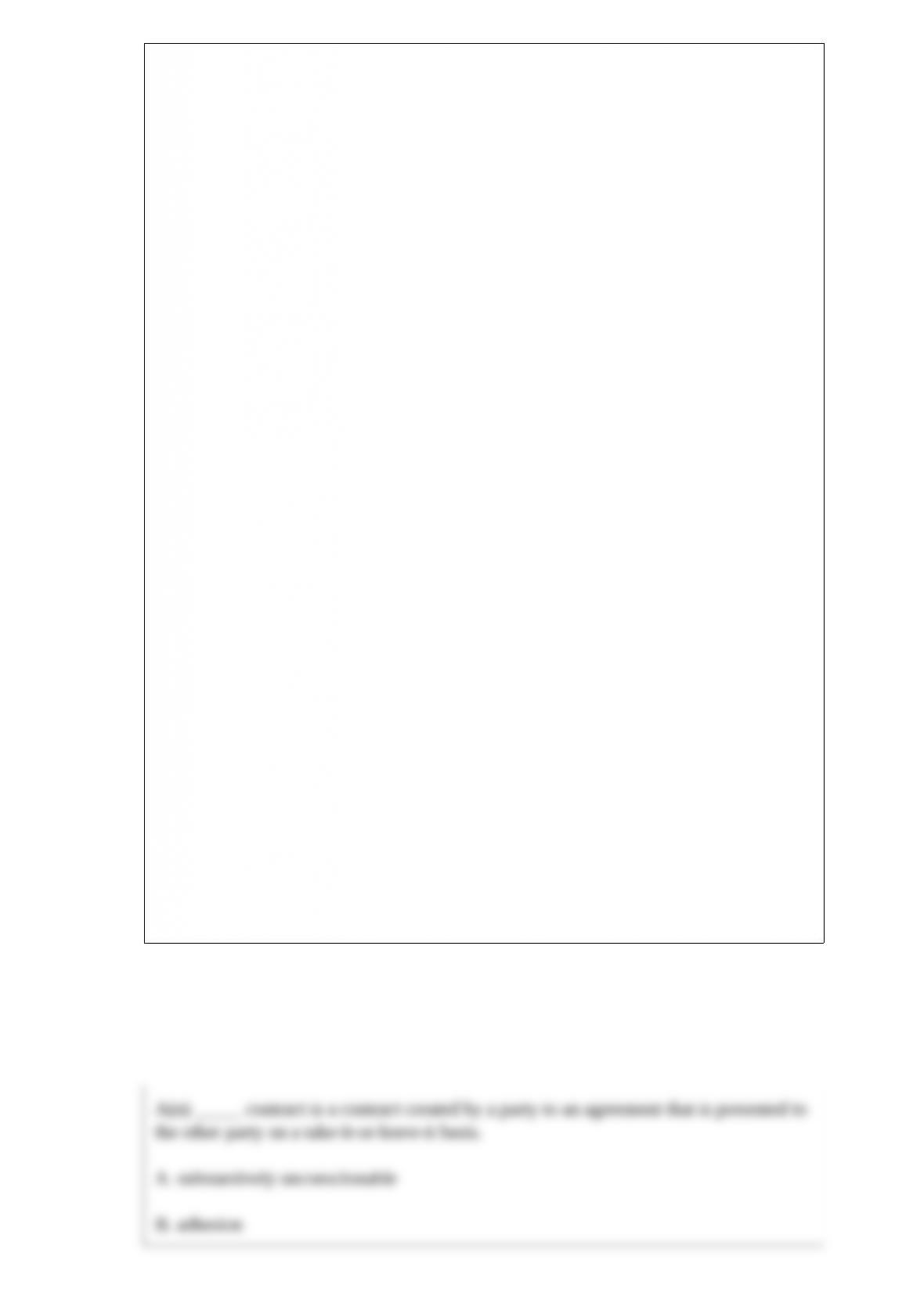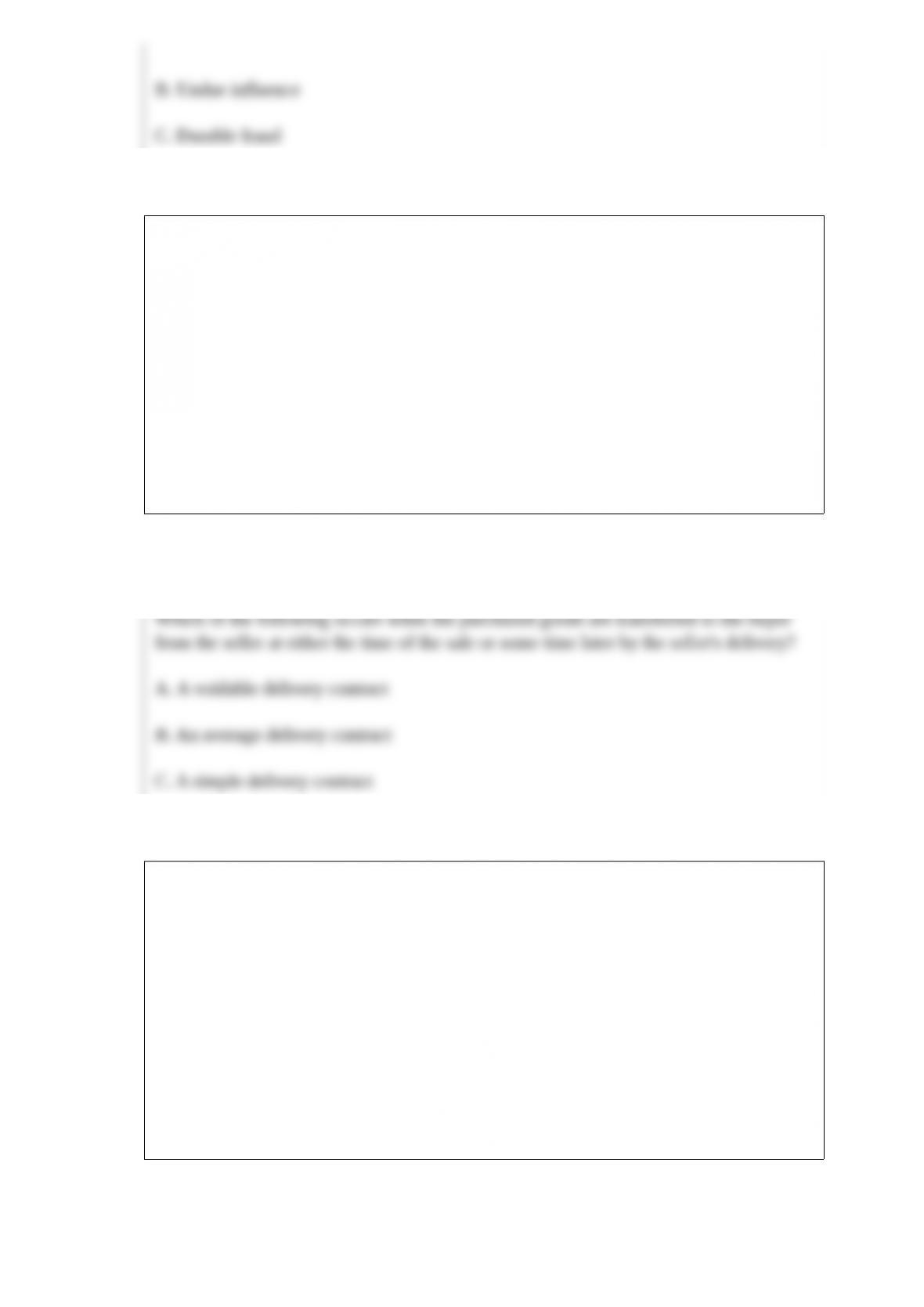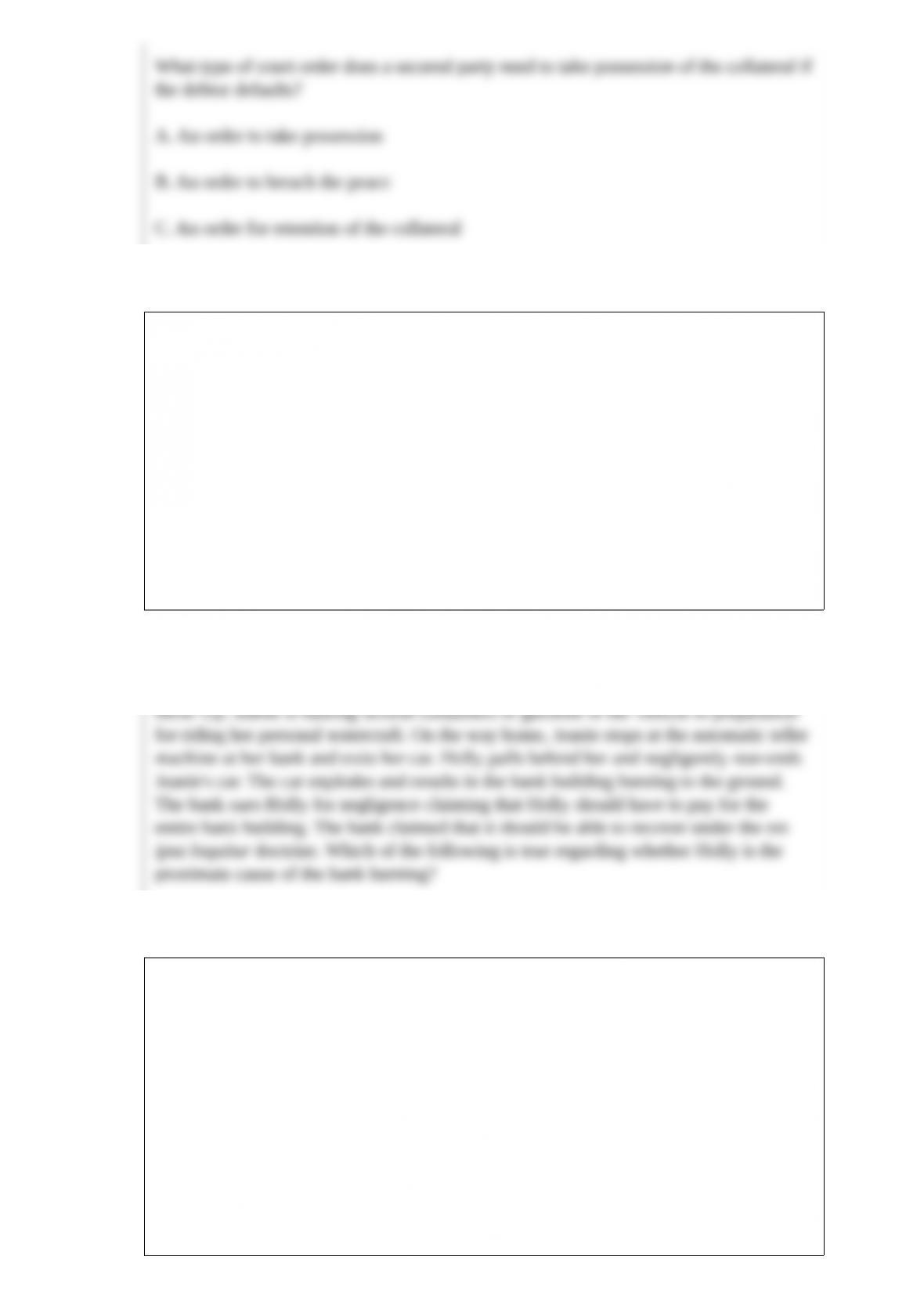Useless Friend. Charles, who is very gullible, is friend with Bobby. Bobby, who cannot
be trusted, decides to try to bind Charles to a contract in Bobby's favor. Bobby has
Charles sign a contract promising to wash Bobby's car once a week for a month for $80.
The contract incorporated by reference terms on the back. The terms on the back were
in very small print and required Charles for one year to cook dinner for Bobby, do his
laundry, and clean his apartment. Bobby is also very angry with his former girlfriend,
Tessa, and decides to start rumors, that would constitute the tort of defamation, such as
that she has a vile disease, cheated on tests, and stole from friends. Bobby wants to
enlist the help of Charles but knows that Charles would be hesitant to assist in his
endeavors. One evening, however, Charles drank too much beer and was clearly
intoxicated - a fact apparent to Bobby. Bobby had him sign a contract agreeing to
defame Tessa for $50. When he sobers up, Charles tells Bobby that he was drunk and
that he has no intention of defaming Tessa, who also happens to be Charles' new
girlfriend. He also finally takes a look at the contract involving work for Bobby and
tells Bobby that the contract is outrageous and that he has no intentions of going
through with any of it. Which of the following is true under the Restatement of
Contracts, Section 16, regarding the claim of Charles that he should be able to avoid the
contract involving Tessa because he was intoxicated?
A. Contracts of an intoxicated person are voidable by the intoxicant if the other party
had reason to know that because of the intoxicated person's condition, that person was
unable to understand the nature and consequences of the transaction or was unable to
act in a reasonable manner in relation to the transaction.
B. Contracts of an intoxicated person are void if the other party had reason to know that
because of the intoxicated person's condition, that person was unable to understand the
nature and consequences of the transaction or was unable to act in a reasonable manner
in relation to the transaction.
C. Contracts of an intoxicated person are enforceable because a person should be bound
by his or her actions.
D. Contracts of an intoxicated person are void only if it can be proven that the other
party was involved in encouraging the abuse of alcohol by the intoxicated person.
E. Contracts of an intoxicated person are voidable by the intoxicant only if it can be
proven that the other party was involved in encouraging the abuse of alcohol by the
intoxicated person.



































































